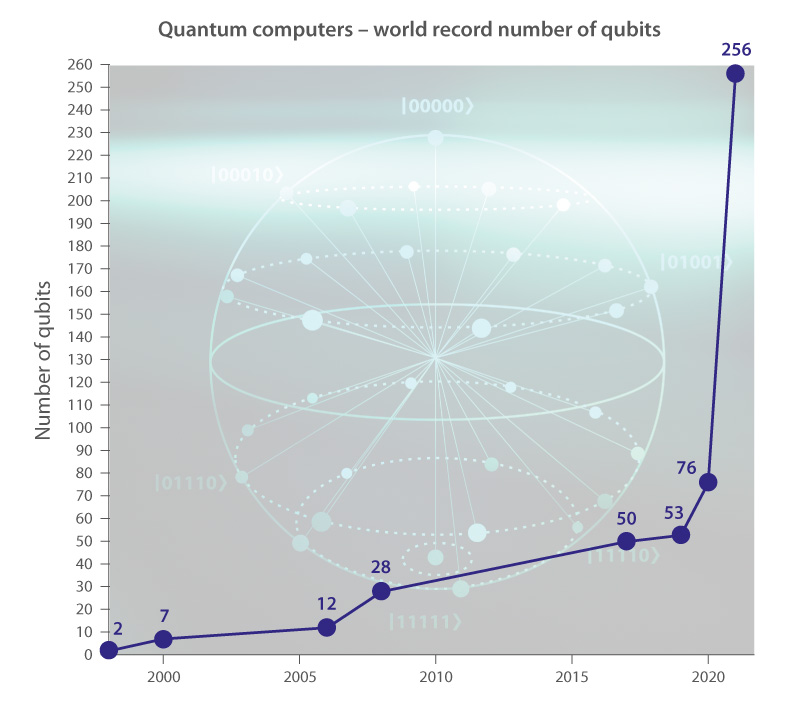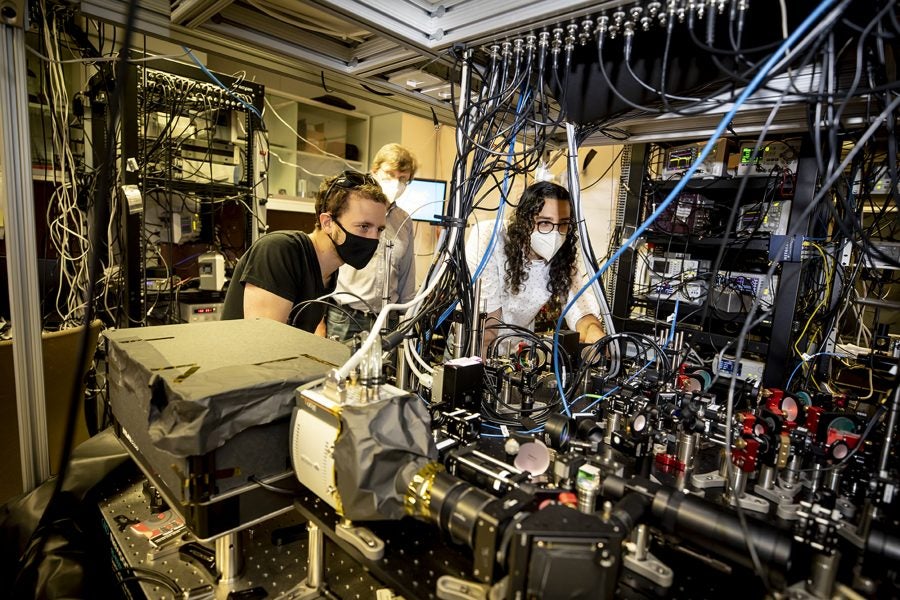
24th November 2021 256-qubit quantum computer unveiled The first 256-qubit quantum computer has been announced by startup company QuEra, founded by MIT and Harvard scientists. QuEra Computing Inc. – a new Boston, Massachusetts-based company – has emerged from stealth mode with $17 million in funding and has completed the assembly of a 256-qubit device. Its funders include Japanese e-commerce giant Rakuten, Day One Ventures, Frontiers Capital, and the leading tech investors Serguei Beloussov and Paul Maritz. The company recently received a DARPA award, and has already generated $11 million in revenue. QuEra Computing recently achieved ground-breaking research on neutral atoms, developed at Harvard University and the Massachusetts Institute of Technology, which is being used as the basis for a highly scalable, programmable quantum computer solution. The QuEra team is aiming to build the world's most powerful quantum computers to take on computational tasks that are currently deemed impossibly hard. Qubits are the quantum computer equivalent of the "bits" used in classical machines. Unlike the latter – which are limited to binary values – qubits can have multiple values simultaneously. This means that even a relatively small number of qubits can handle very, very, very large numbers. This has become apparent in recent years with qubit counts enabling quantum computers to exceed the capabilities of classical machines for the first time. In the future, quantum computers may be powerful enough to solve extraordinarily difficult and complex problems, accelerating the progress of science and technology. Barely a week ago, IBM revealed a new 127-qubit processor called 'Eagle'. QuEra has more than doubled that number with its machine and already has plans for a 1,024-qubit, fully programmable device by 2024.
QuEra is focused on making advances in two key areas: increasing the number of useful qubits and enhancing their programmability. The company is developing "neutral atom" technology based on the patented research of its co-founders, a team of physicists and engineers from nearby Harvard and MIT. This hardware involves hundreds of atoms being cooled and then arranged by laser fields in a small vacuum chamber. While the chamber's glass walls are at room temperature, just millimetres away the atoms are laser-cooled to a virtual standstill, reaching one millionth of a degree Kelvin above absolute zero. That is over a million times colder than deep space and over 1,000 times colder than the superconducting qubits by rivals IBM and Google. Unlike quantum computers based on trapped ions, which repel in close-packed quarters, QuEra's system can arrange hundreds of neutral atoms into sub-millimetre arrays. By way of comparison to classical computing, this density is similar to transistors on a late 1990s Intel CPU. However, instead of connecting transistors by wires, QuEra connects its neutral atom qubits by "Rydberg blockade." This works by using laser flashes to drive electrons in selected atoms to an outer orbital that causes the parent atoms to briefly "puff up" – but only if they are not blocked by another puffed up atom. In a few nanoseconds, this blockade forms a conditional logic gate, with computational power increasing exponentially as the effect cascades through more and more qubits. Having completed the first 256-qubit device, QuEra will soon make it accessible to customers. The company hopes to address today's "impossible problems" in chemistry, finance, logistics, materials, pharmaceuticals and more. "There is an enormous opportunity to make headway on some of today's most critical – and presently impossible – problems that impact nearly every one of us," said Alex Keesling, CEO of QuEra and co-inventor of the neutral atom technology. "With our first machine, we are excited to begin to demonstrate what quantum computers can do for humanity." "QuEra's proprietary technology combined with its team of pioneers in quantum computing is unmatched," said Takuya Kitagawa, Chief Data Officer at Rakuten, who led the investment in QuEra. "QuEra will accelerate the quantum computing industry's trajectory, making it a technology not of the future, but of today."
Comments »
If you enjoyed this article, please consider sharing it:
|








